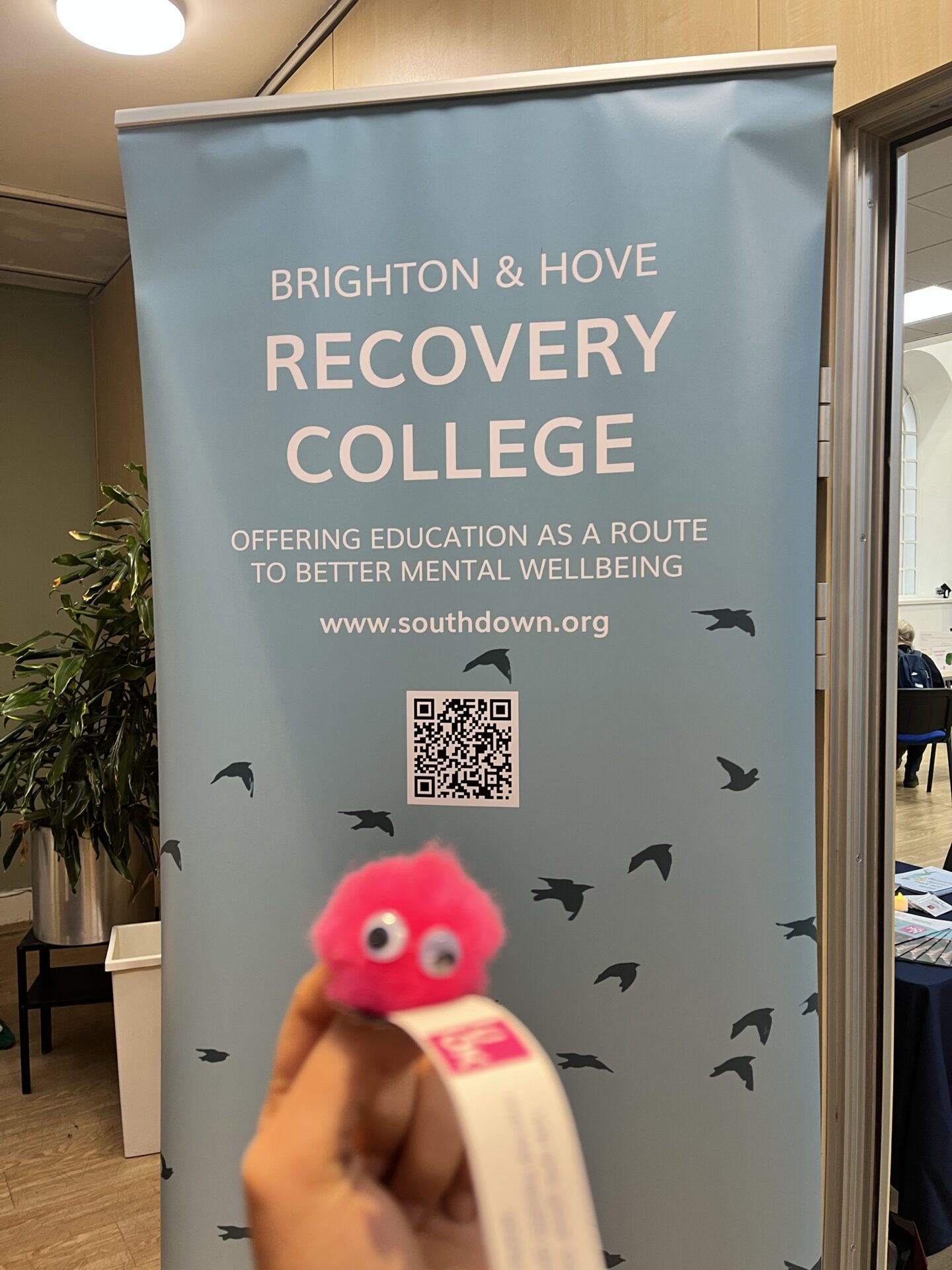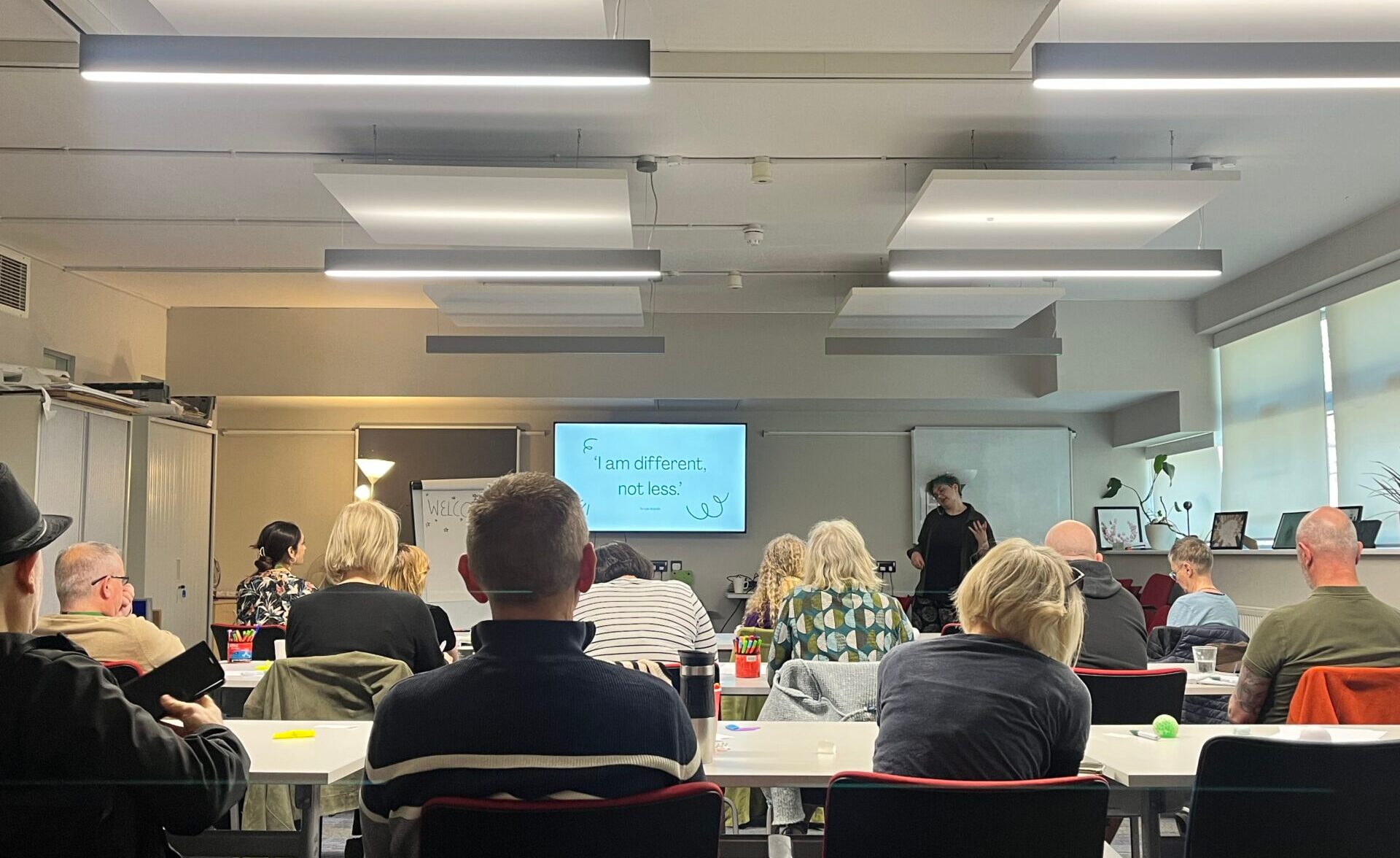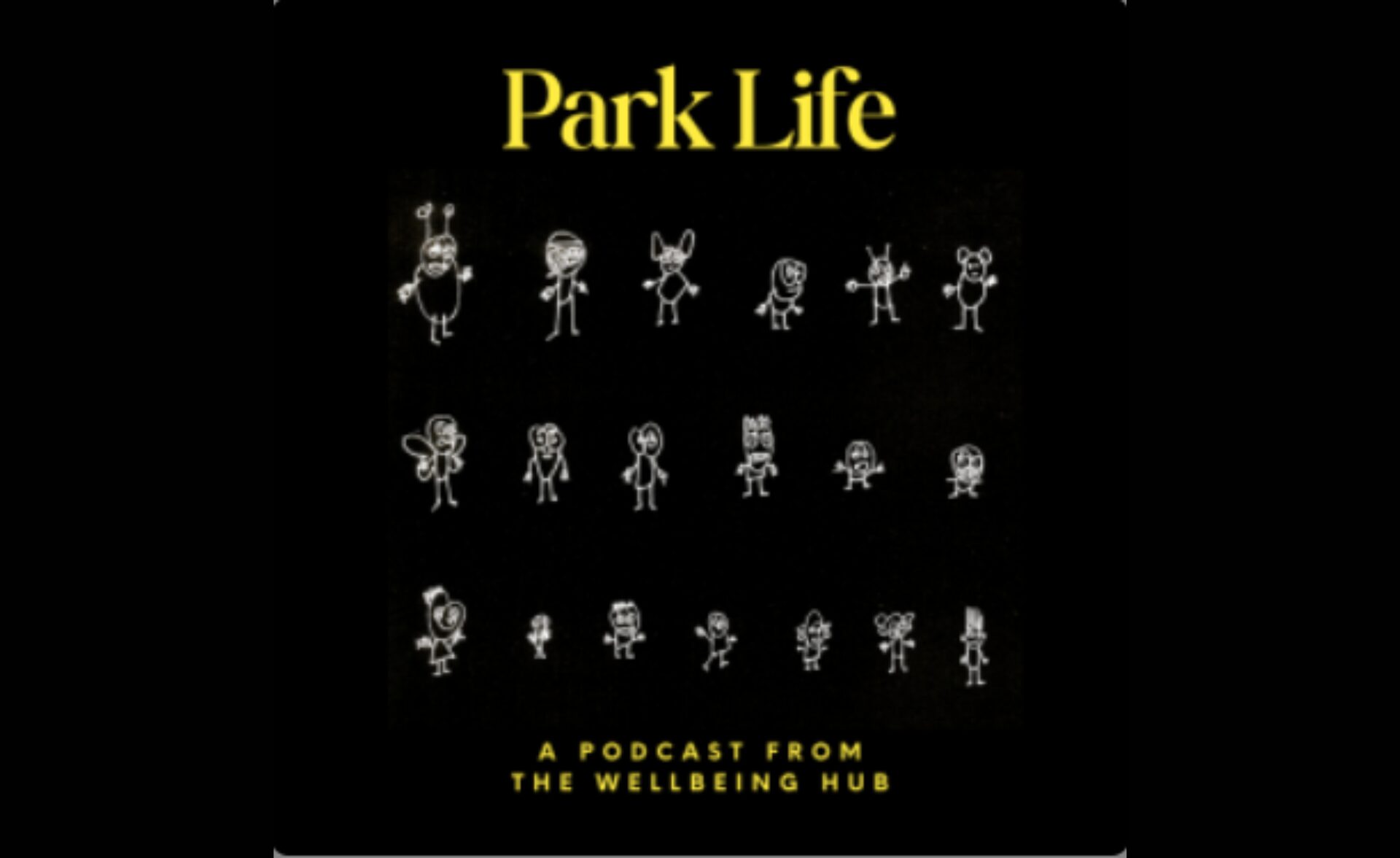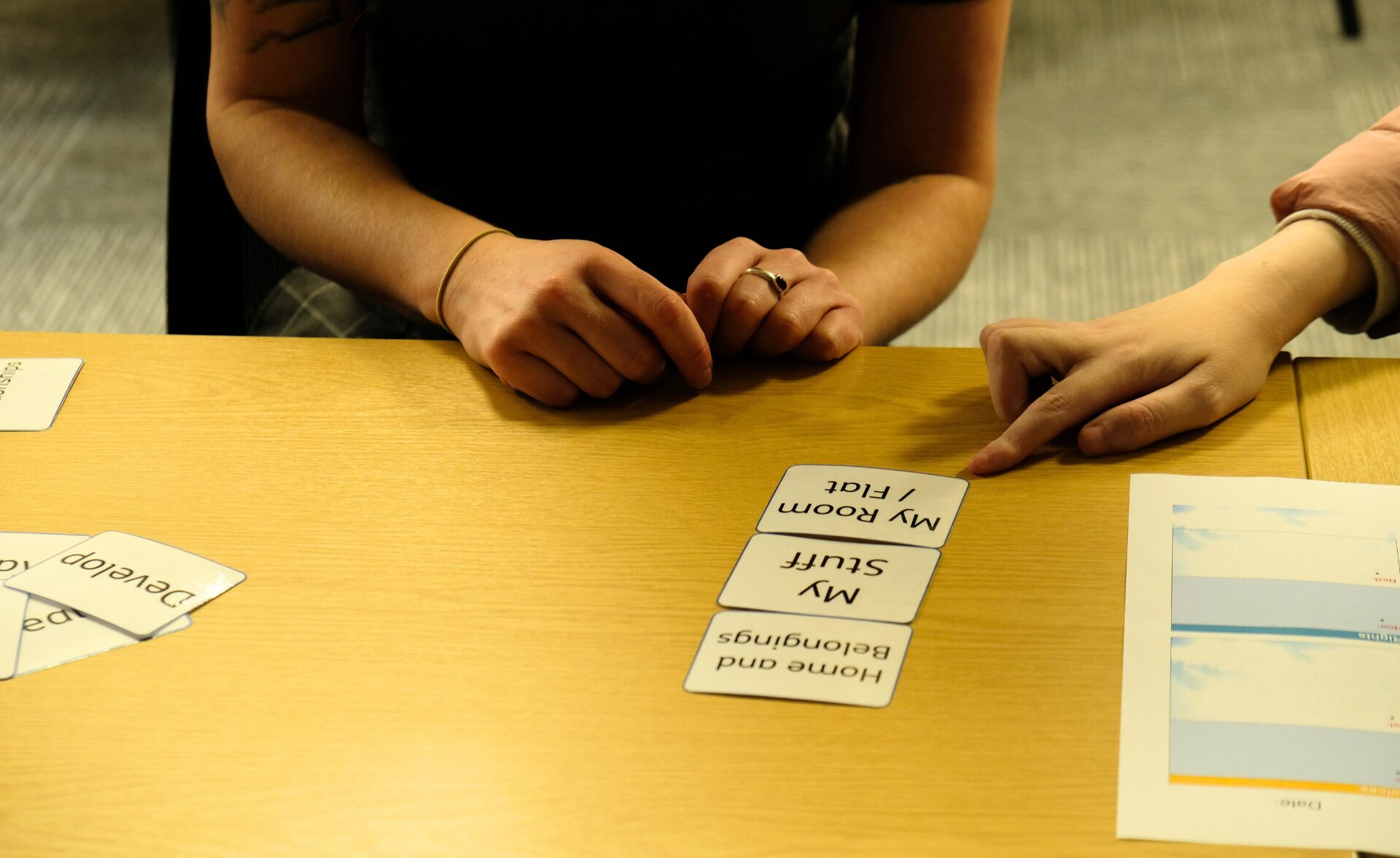Insights from the Recovery College Workshop Marking World Autism Acceptance Month
Posted on 15 April 2025
April marks World Autism Acceptance Month (WAAM) 2025, a time dedicated to promoting understanding and acceptance of autistic individuals. Earlier this month, Southdown-run Brighton & Hove Recovery College held an insightful and thought-provoking workshop to deepen awareness of autism.
The workshop, led by Eden Brookes, our Recovery College Peer Tutor with lived experience of autism, was open to all professionals in Brighton & Hove who support autistic people. It provided an overview of autism, addressing common misunderstandings and giving a deeper understanding of the spectrum.
Key topics covered included:
Defining Autism: Autism was presented as a genetic neurodevelopmental condition, a lifelong spectrum condition where each individual experiences it uniquely. It was emphasised that autism is a form of neurodiversity that there is a way to be aware of the needs of an autistic person and make small changes to support them. A disability is a disability, only because the world is not accessible.
Communication and Behaviour: A central takeaway was the principle that “all behaviour is communication.” The workshop highlighted that behaviours often seen as difficult or challenging are frequently expressions of unmet needs and reflect the individual’s efforts to navigate a world not inherently designed for them.
Terminology and Understanding: The workshop addressed appropriate words to use, the diverse presentations of autism, and the challenges autistic individuals face. It also explored the social model of disability, emphasising that accessibility is key.
Workplace Considerations: Participants discussed workplace strengths and challenges, and strategies for becoming better allies to autistic colleagues.



The workshop offered practical tips for effective communication, including:
- Using specific language and avoiding vague questions.
- Prioritising clear and direct communication over reliance on nonverbal cues.
- Implementing small, considerate actions, such as providing meeting reminders, dealing with one topic at a time.
One of the participants, Audrey from SpeakOut, Brighton and Hove, said:
“This has given me so much insight into a couple of people’s inner lives specifically. I feel like I can communicate better with them. It’s also good to think of how the organisation can communicate with autistic people better. We run a lgbtq+ group for young people. I did not realise the link between these groups and autism, it’s a good connection to make.”
This workshop was an invaluable opportunity to deepen our understanding of autism and how we can better support those on the spectrum. As we continue to celebrate World Autism Acceptance Month, let’s remember that our actions, no matter how small, can make a significant difference in creating a more inclusive world.



